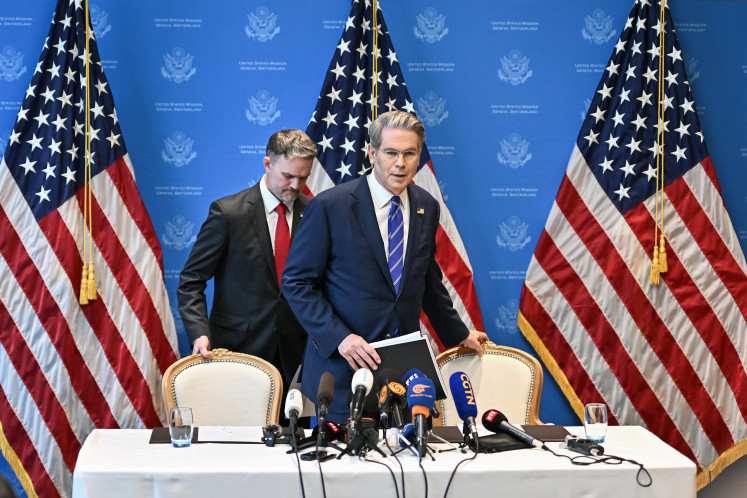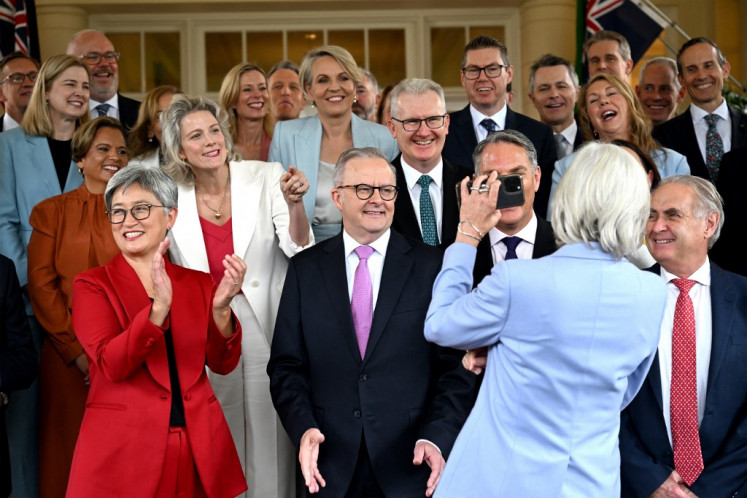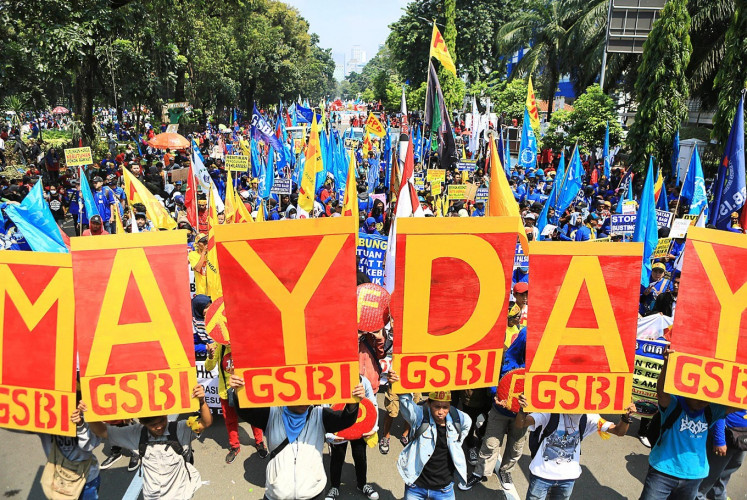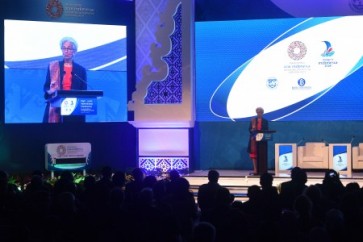ASEAN and the IMF: Working together to foster inclusive growth
Recent IMF research has shown that, when the benefits of growth are shared more broadly, growth is stronger, more durable and more resilient.
Change text size
Gift Premium Articles
to Anyone
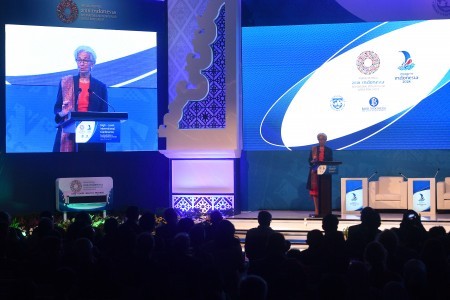 International Monetary Fund (IMF) managing director Christine Lagarde speaks at an international conference themed: Models in a Changing Global Landscape in Jakarta on Feb. 27 as a series of a preparation for the IMF-World Bank Annual Meetings 2018 in October. (Antara/Sigid Kurniawan)
International Monetary Fund (IMF) managing director Christine Lagarde speaks at an international conference themed: Models in a Changing Global Landscape in Jakarta on Feb. 27 as a series of a preparation for the IMF-World Bank Annual Meetings 2018 in October. (Antara/Sigid Kurniawan)
I
ndonesia and its ASEAN partners have been successful in creating vibrant middle classes, opening the doors to higher living standards for millions of people. By generating strong growth over the past two decades, they have also become key drivers of the global economy.
Their success is no accident. It is about implementing strong policy frameworks, drawing lessons from the past and embracing change and openness. All that work has paid off. The world can learn so much from this region — including the so-called “ASEAN way” of reaching across borders. It is, in my view, beautifully captured in the Indonesian phrase, gotong royong, working together to achieve a common goal.
In this region and across the world, the International Monetary Fund (IMF) is working in partnership with our member countries to achieve a common goal—building economies that are fit for the future. The good news is that we finally see a broad-based upswing, involving three quarters of the world economy. We expect global growth to accelerate further to 3.9 percent this year and 3.9 percent next year as well.
There is good news also in Indonesia, where growth is projected to reach 5.3 percent in 2018 and rise gradually over the medium term. Indonesia can be proud of the progress achieved. Over the past two decades, poverty levels have declined by almost 40 percent; life expectancy has increased by more than 6 percent; and the number of people with tertiary schooling has increased by 250 percent. These achievements are representative of the positive trends across ASEAN countries.
At the same time, economic landscapes are shifting. Think of the increased volatility in financial markets, the heightened risk of trade disputes and the profound impact of rapid technological advances such as digitalization, robotics and artificial intelligence.
ASEAN countries can navigate this difficult terrain by meeting three main challenges: managing uncertainty, making their economies more inclusive and preparing for the digital revolution.
ASEAN countries have built stronger economic foundations — which helped them weather the global financial crisis and the “taper tantrum” in 2013. Indeed, most countries in the region have improved their policy frameworks. This includes adopting inflation targeting in Indonesia, the Philippines and Thailand; as well as fiscal rules in Indonesia, Malaysia and Vietnam.





